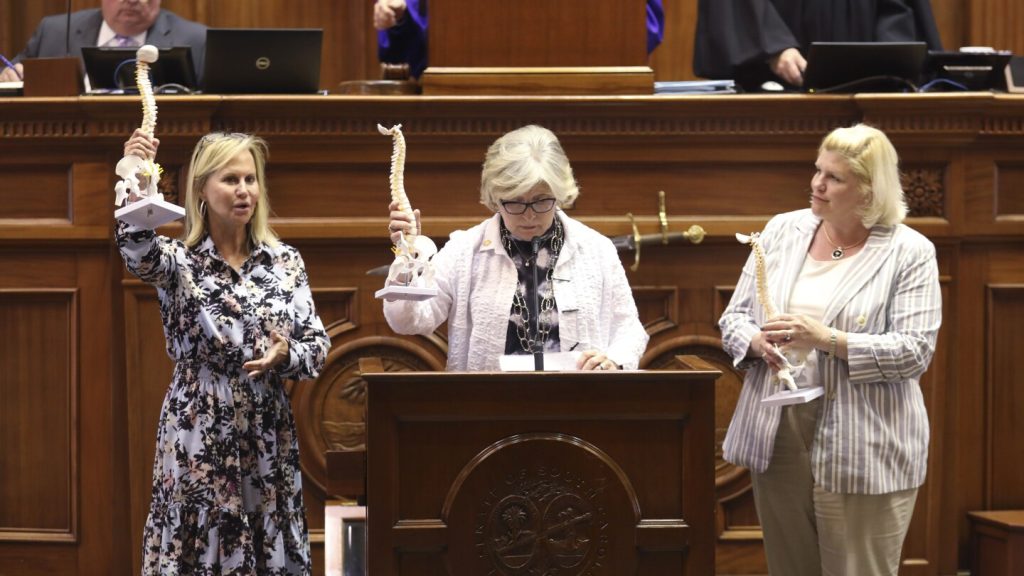In the recent primary elections in South Carolina, a near-total abortion ban was defeated with the help of the only three Republican women in the Senate. However, despite their efforts in defeating the ban, these senators are now losing their election bids. This loss comes as a blow, as the state had only men in the Senate in 2012 and may end up with no Republican women in the chamber by 2025. This outcome highlights the lack of representation of women in the state’s legislature, with just two Democratic women among the 46 members.
Voters in South Carolina bucked the trend of having second thoughts about more restrictive abortion laws, as a near-total ban did not have widespread support in polling. Despite low turnout, races in Republican-drawn districts saw voters expressing fervent opinions on issues like abortion. The Republican women had managed to force a compromise, resulting in a ban on abortion once cardiac activity is detected, typically around six weeks after conception.
The primary races saw significant losses for the Republican women who had previously challenged the abortion ban. Penry Gustafson lost with less than 20% of the vote in a redrawn district, while Sen. Sandy Senn lost by just 31 votes and is awaiting a potential recount. Accusations and negative campaigning were prevalent in these races, with opponents pointing out perceived failures in their opponents’ records.
Sen. Katrina Shealy was the sole Republican woman to survive the primary and is headed for a runoff. She will face attorney Carlisle Kennedy, with billboards in her district questioning her stance on abortion. Shealy’s strategy for the runoff will likely shift, despite wanting to stay above the fray initially. The potential loss of these Republican women in the Senate could lead to a significant lack of female representation, with only two Democratic women potentially remaining in the chamber in 2025.
Shealy emphasized the importance of having a female perspective in the Senate, as women make up 55% of registered voters in South Carolina. Issues like providing free lunch for all schoolchildren and caring for marginalized groups may be overlooked without proper representation. Shealy pointed out that her initial election in 2012 was not solely focused on abortion rights but rather on advocating for children, families, veterans, and other underserved populations. If she loses in the upcoming runoff, there may be a significant loss in diverse perspectives within the state legislature.


